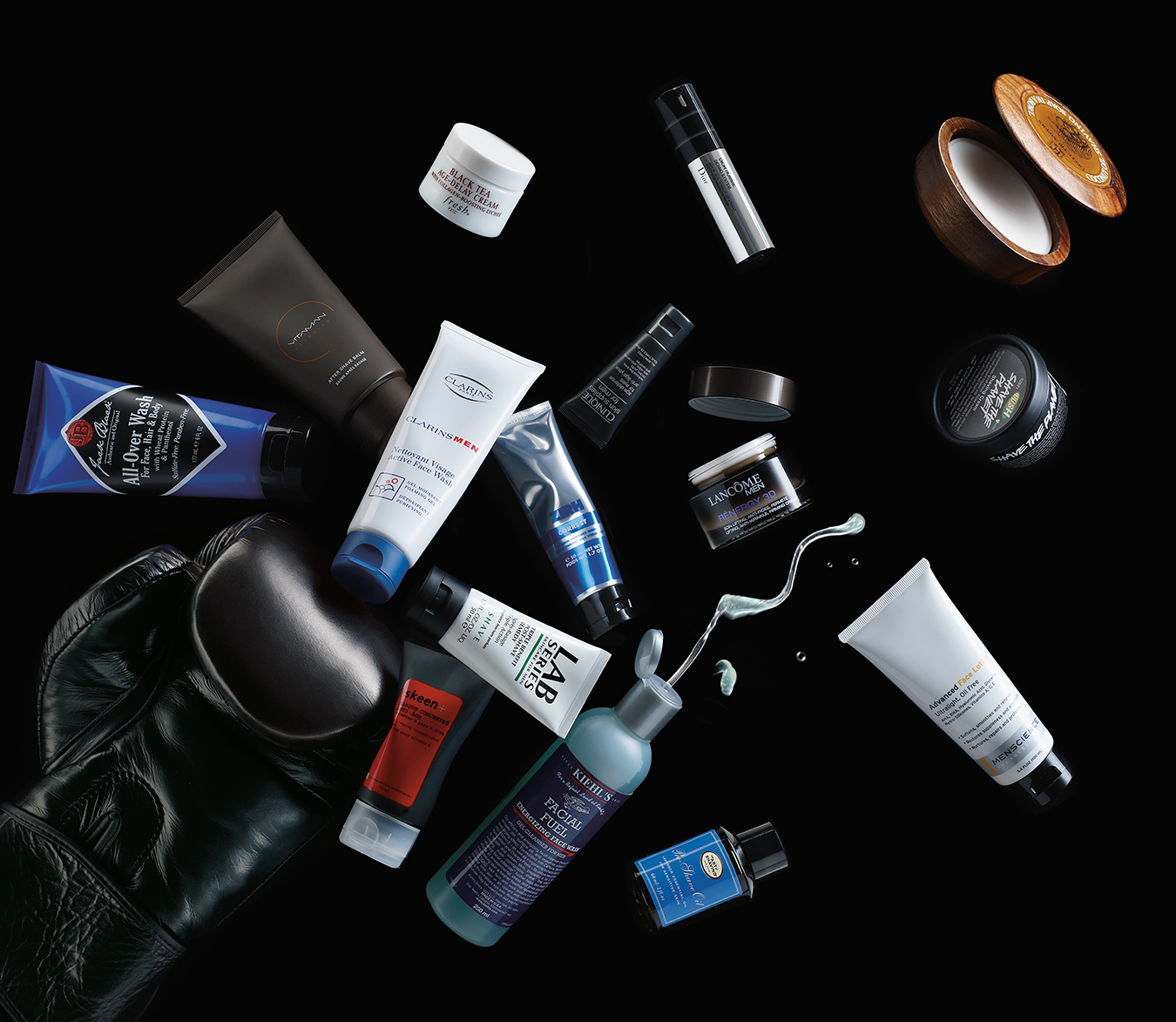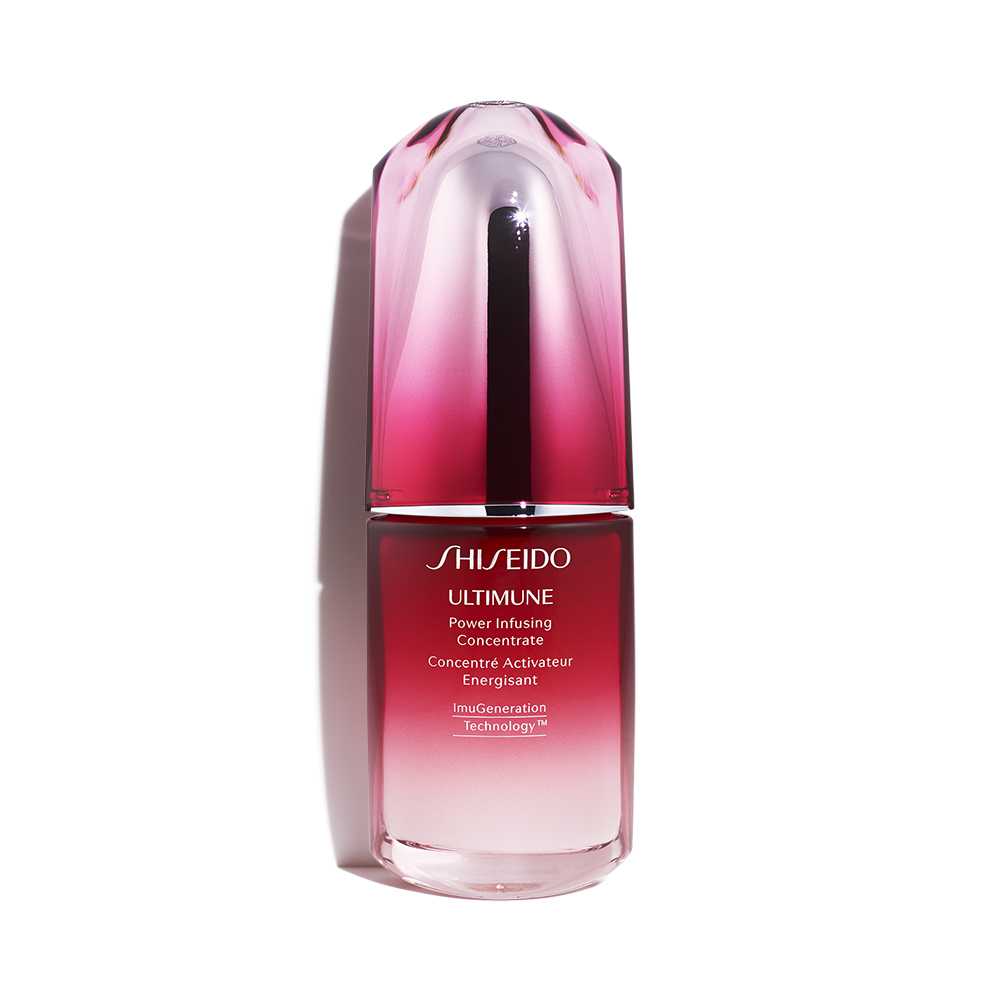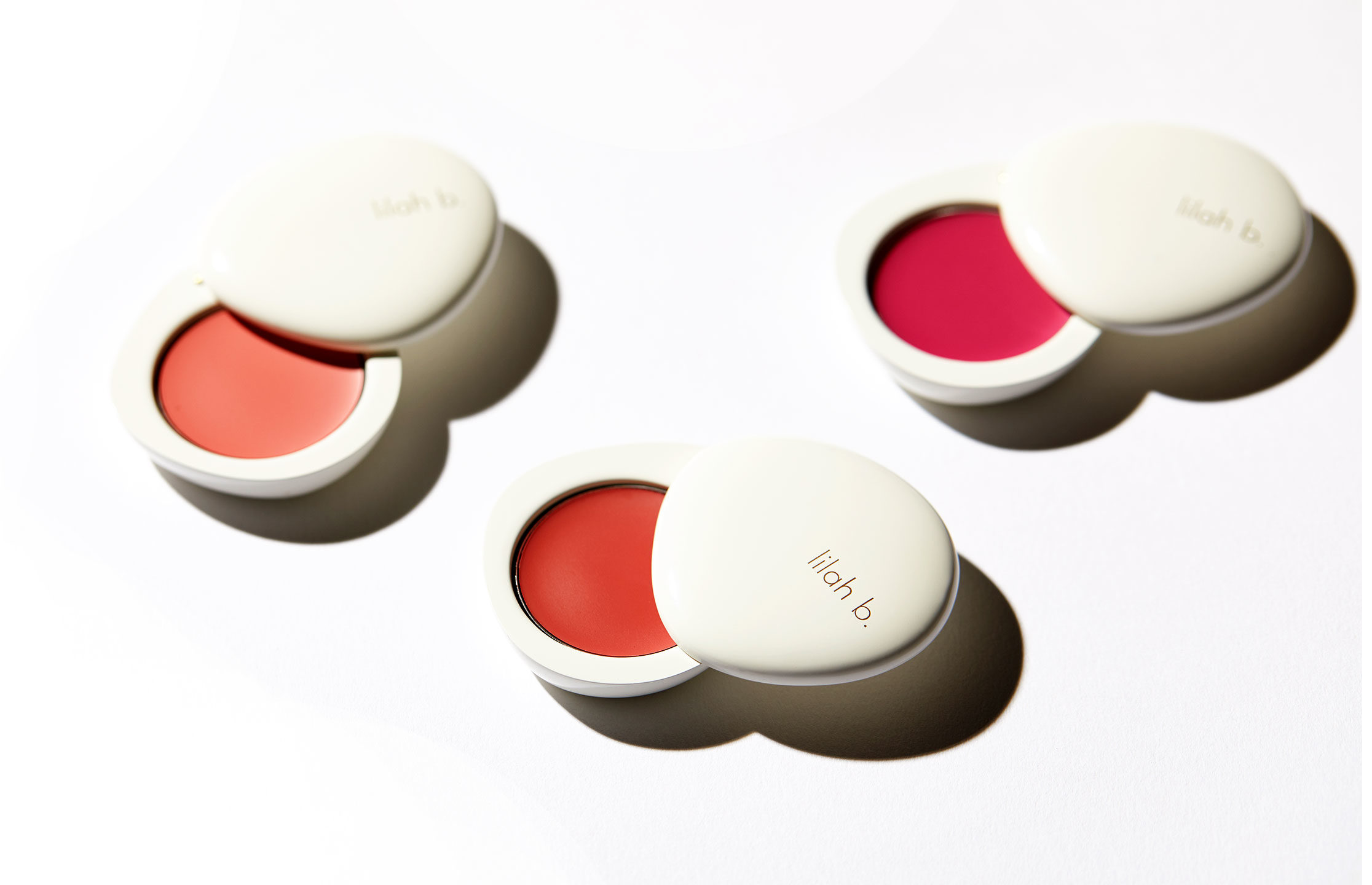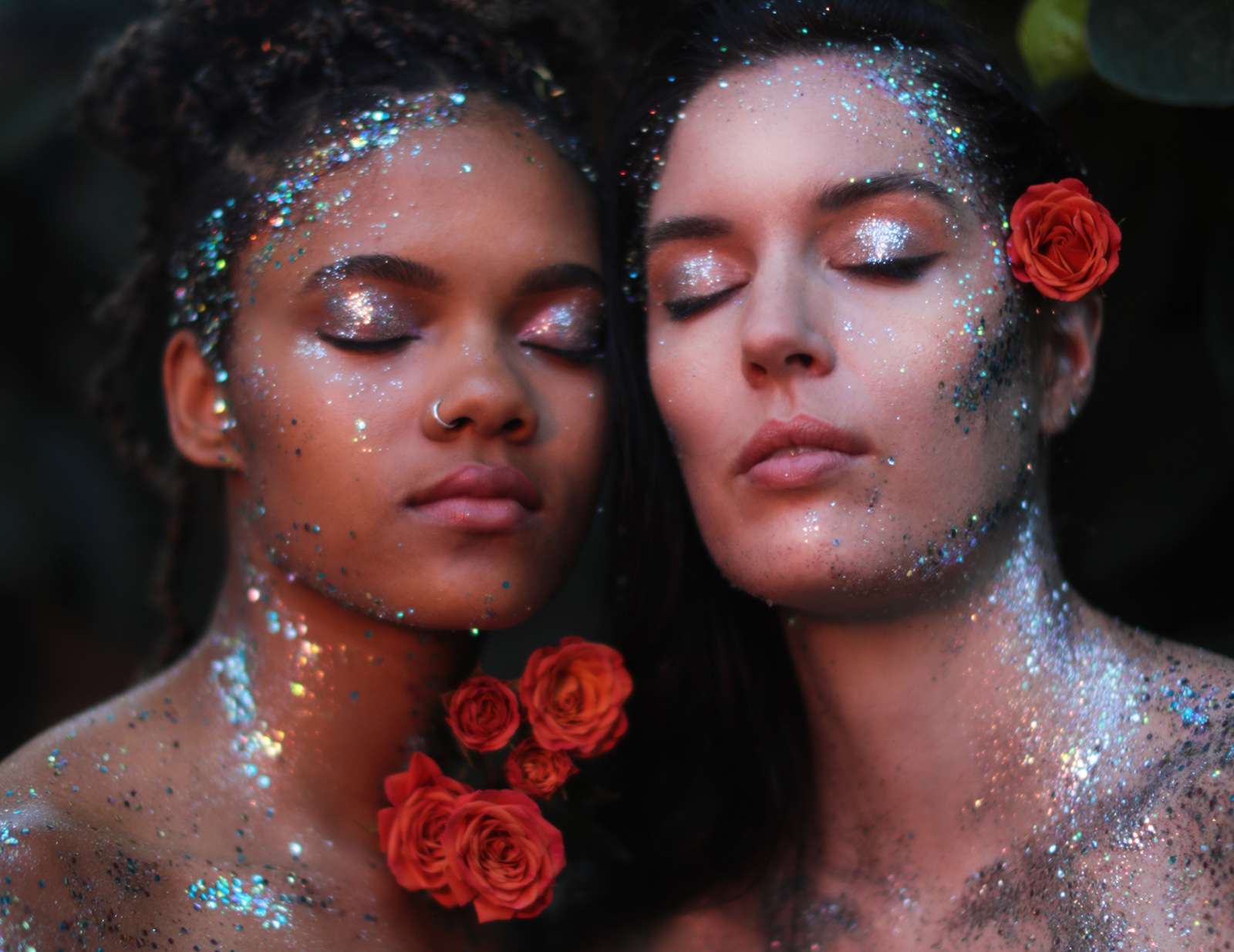When Body Positivity Meets the Beauty Industry
Selling dreams.
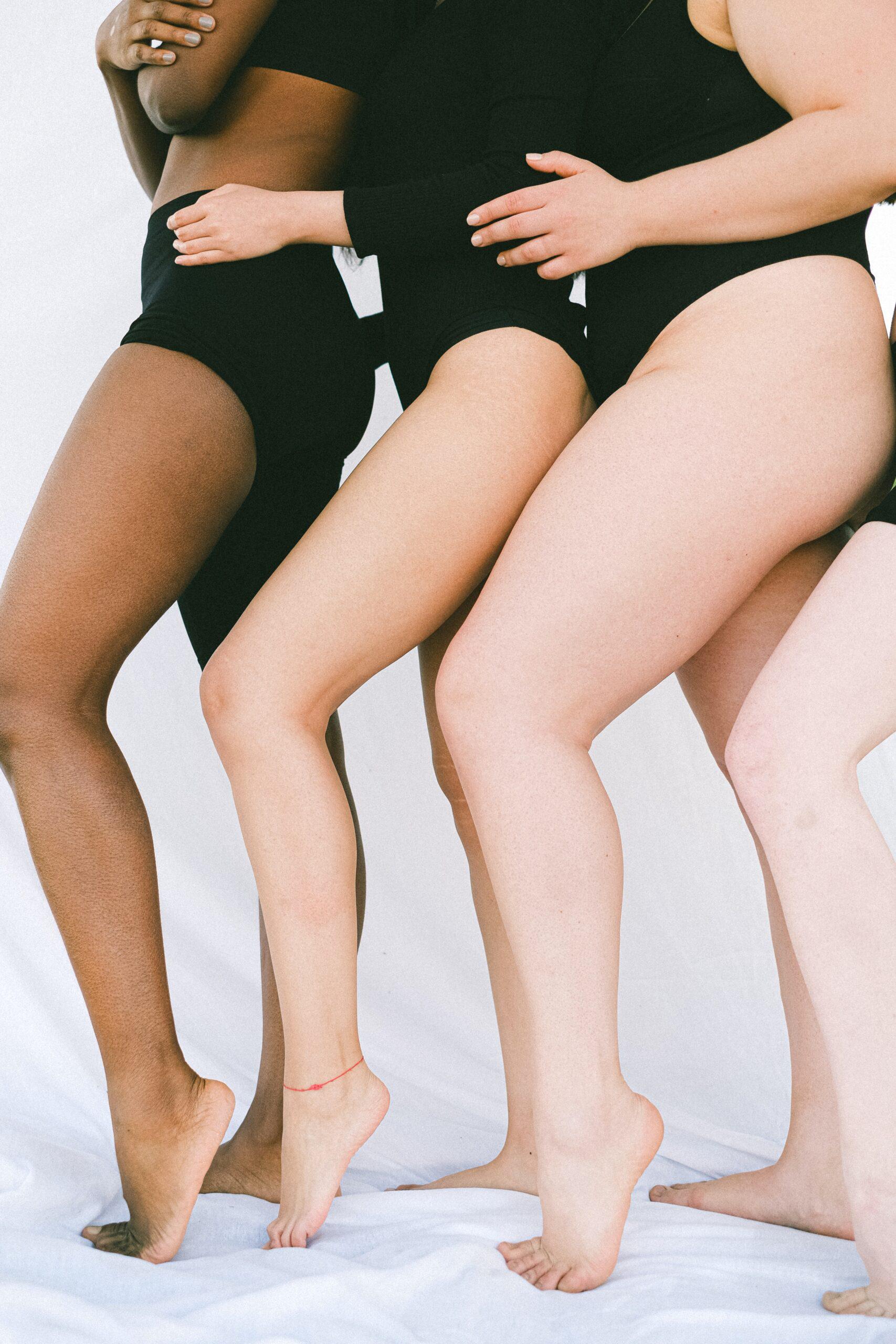
Different types of beauty products have had varying fortunes during the pandemic. Makeup sales are down while hair products remain in demand. But one area seeing exponential growth is the realm of body care, from lotions that moisturize to devices promising to zap your stretch marks.
“With regard to the pandemic, there is a cultural shift,” says New York–based dermatologist Dr. Dennis Gross. “People are more interested in wellness and want to take better care of themselves. The trend is less makeup, because people want to naturally look better. The body is the next frontier.”
Dr. Gross says that these days, 50 per cent of the people coming to his office want to talk about their body, while five years ago it was 15 per cent at most. They’re looking for treatments that promise to slim them down, tighten them up, and smooth their skin. He’s also launched a body product through his consumer brand, Dennis Gross Skincare. Alpha Beta Exfoliating Body Treatment claims to exfoliate, moisturize, and treat signs of aging on the body, as well treating conditions like acne and keratosis pilaris. It’s currently the No. 1 body product in Sephoras in the U.S.
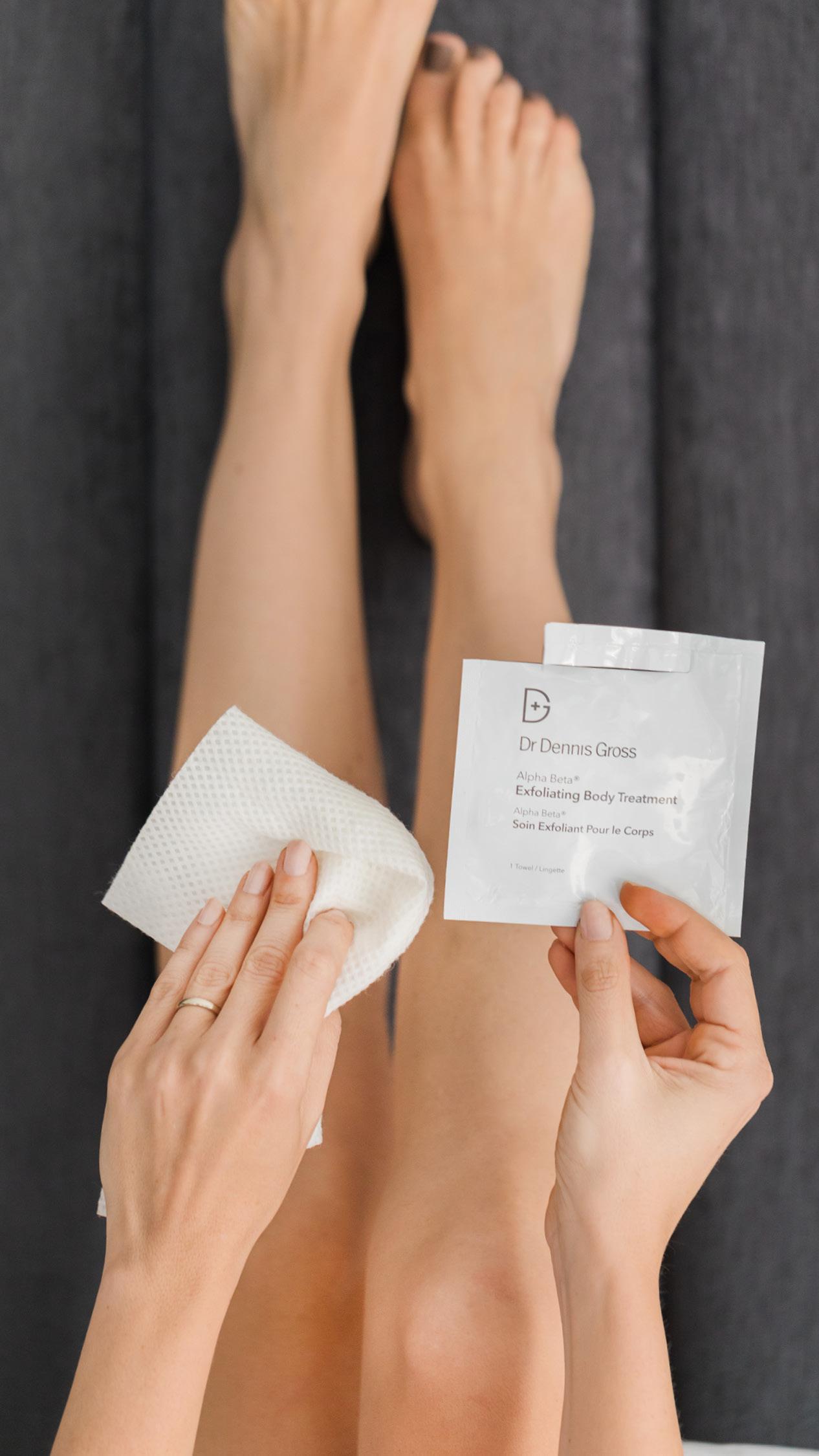
Meanwhile on social media, we’re getting a different story: body positivity (used as a hashtag on Instagram 15 million times and counting). The movement encourages people (mostly women) to proudly to show their cellulite, stretch marks, and body hair. Their perspective? That it’s not our bodies that need to be corrected—it’s the world, and therefore we need to normalize the diversities in shapes, sizes, colours, ages, and abilities.
“In the last 10 years or so, we’ve seen a surge in body positive [social media] accounts, a call to companies to include diverse body types in advertising campaigns, and a shift in the body types portrayed in media,” says Erin Treloar, health coach and founder of Raw Beauty Co. “Don’t get me wrong, we still have a long way to go, but in a lot campaigns we are seeing more diversity.” She believes that one of the reasons the Victoria’s Secret Fashion Show came to an end is because the campaigns stopped having resonance.
The underwear brand is not alone in adapting, the beauty industry is changing too: at the beginning of March, Unilever announced that, as part of a strategy called Positive Beauty, it would be removing the word “normal” from its packaging. It also committed to not digitally altering a person’s body shape, size, proportion, or skin colour in advertising. “[Positive Beauty] will champion a new era of beauty which is equitable and inclusive, as well as sustainable for the planet,” the brand said in a media statement.
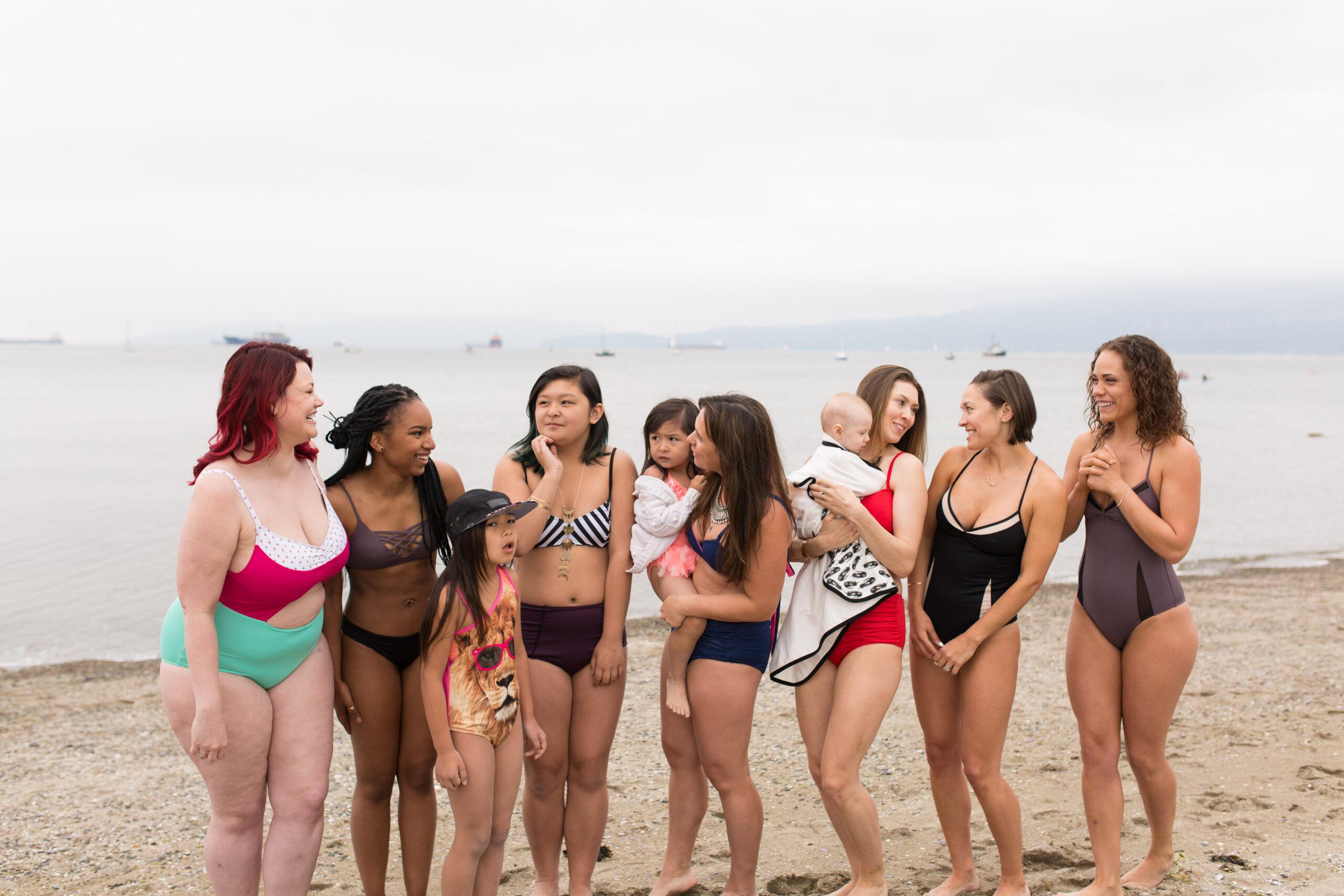
Photo by Brit Gill courtesy of Raw Beauty Co.
Treloar says she’s hearing people say they want to feel more comfortable in their bodies, recognizing the impact that the beauty industry and the thin ideal have had on them. “They are just tired of having to work so hard to maintain unrealistic standards,” she says. “From my own experience, if we use the example of stretch marks, I used to hate mine, was so embarrassed by them, wanted to cover them up. Since I started RAW seven or eight years ago, I have seen hundreds if not thousands of pictures of them. Now they are so normalized to me, if I see a woman without them, it’s strange to me!”
So what’s going on? On the one hand we’re demanding high-tech body products and procedures and on the other, we’re preaching acceptance and celebration of our “flaws.” According to Dr. Gross, it’s all about what makes you feel good—and there are different routes to that. “Some people are told to accept things they don’t want to. Acceptance is fine for some people, but it’s a sour pill to take if that’s not what you actually want,” he says. “We’re not creating a value judgement that says you must use a particular product or your value system is screwed.” In many cases, conditions like body acne or keratosis pilaris can be sore and uncomfortable as well as demoralizing; they can limit the things you wear or your activities because you feel self-conscious. Exfoliating the skin on your legs makes them feel nice and smooth as well as less itchy.
Treloar says she isn’t against the beauty industry and agrees that all sorts of things can make you feel good. “I believe that when the doctors do procedures on women, it is a form of wellness. If a person is struggling with self-esteem issues—say, they hate the way their nose looks and there’s an option to change it—that’s a form of wellness and beneficial to those individuals.” Her issue is when people are constantly in search of perfection, a goal that Dr. Gross also agrees is unattainable. “You have to know and be honest with people about whether something can work. Give them the knowledge and let them decide for themselves,” he says. “People are looking for research data, and they’re looking for results.”
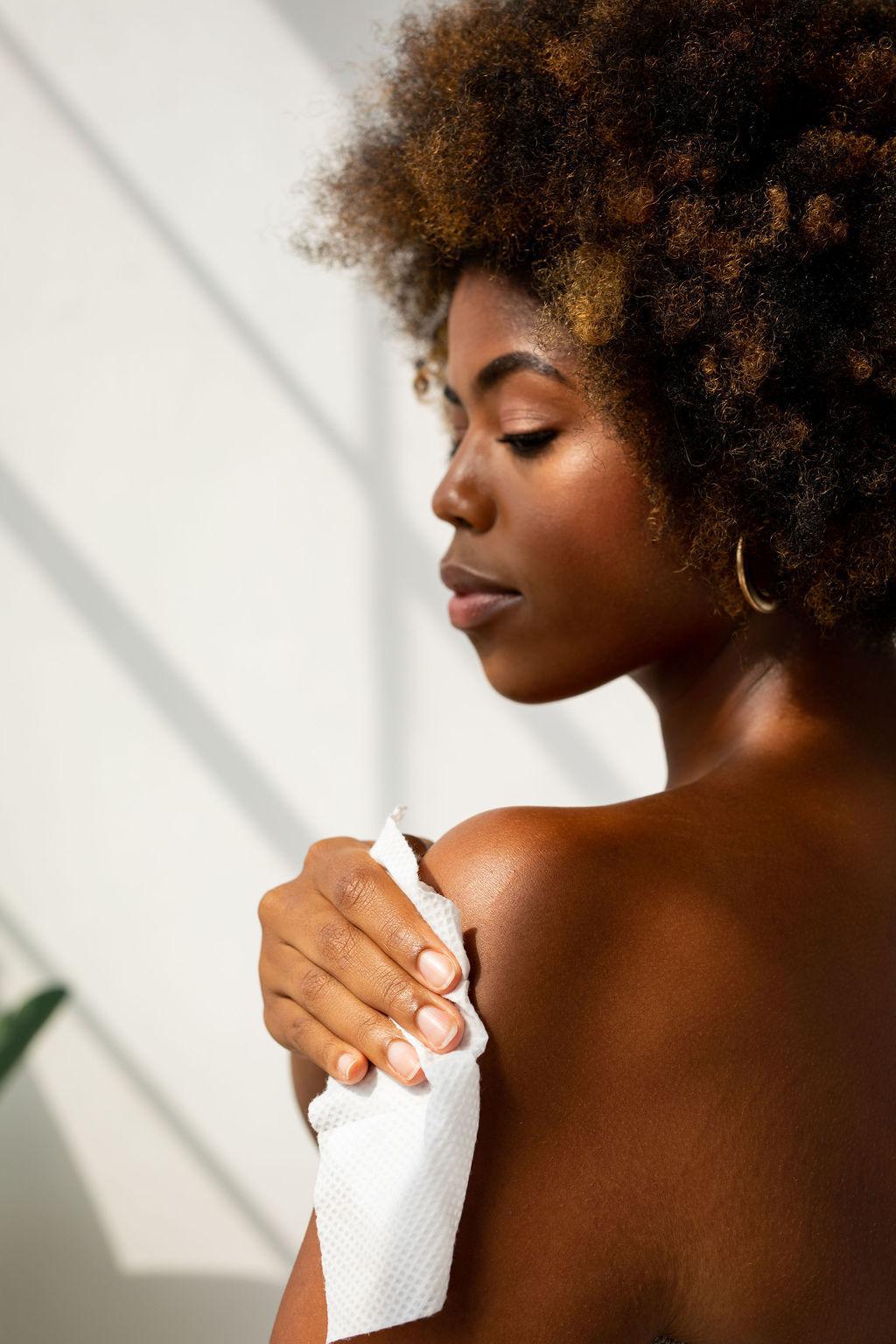
Lush Cosmetics has the same goal of educating customers and working with them to find solutions. “One of my favourite questions staff might ask a customer is what they really like about their skin,” says brand and product expert Erica Vega. “They’re so self-deprecating, and they say the things they hate about themselves, but they might say, ‘On a good day, my skin feels smooth.’ It’s about the positivity and the approach.”
The brand sells itself on sensation and how a product makes you feel, more than specific results. “There has been a shift away from appearance in the beauty industry, to some degree,” Lush brand director Brandi Halls says. “It’s a move away from selling looking good to feeling good. That could be emotionally, physically, spiritually. It’s about feeling good in your skin, even altering your mood with a bath bomb. Our products might have magical effects on skin, but we’re not selling dreams. We don’t want a person to buy a product, be disappointed, and it ends up in landfill.”
Up until a few years ago, Lush didn’t use professional models but exclusively people from the office and their friends and family members, which led to a homegrown and natural look. More recently, it’s started working with an agency, but it’s not about getting polished perfection. “Our creative direction over the years has always been for authenticity and showing real bodies,” Halls says. “But where we used to rely on staff, we’re now seeking professional models in order to be even more inclusive. We still have that organic and raw look and styling, all body types, all ethnicities.”
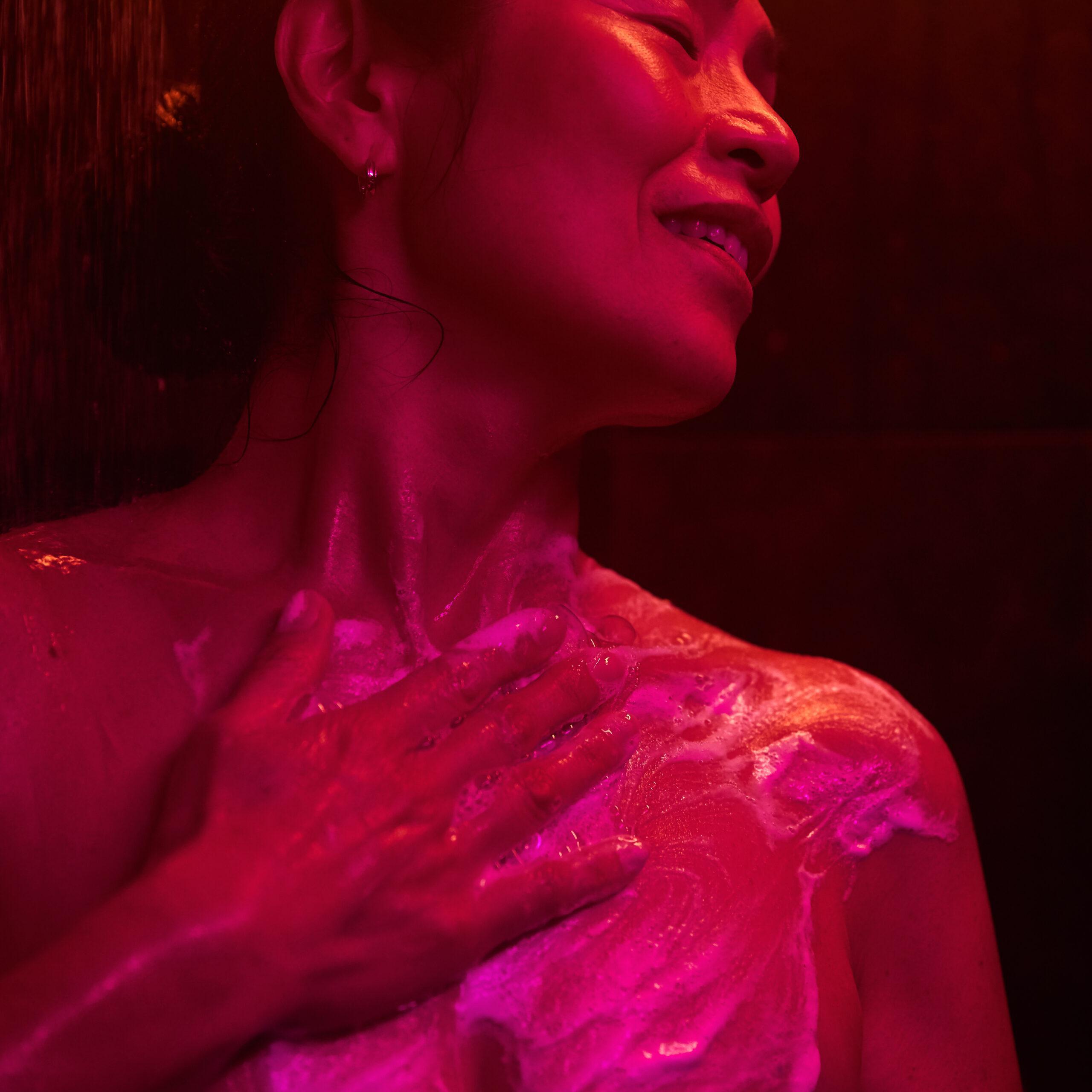
It aligns with a new vision of what aspirational can mean, according to Vega. “We talk about it more in a way of, ‘what are the things that you aspire to that your skin or your hair can actually do for you?’” she says. “Your hair might not be completely able to change overnight and grow three feet, but it can be shinier and more defined and more manageable.”
There may also be a generational difference in how we feel about our bodies and what we need (or don’t need) to do to them to feel good. On the one hand, young people now have been raised with social media, cameras easily at the ready, filters everywhere. On the other, they aren’t invariably brought up soaked in the patriarchy, with mothers who talked negatively about their own bodies and thin white bodies the only images in mainstream advertising. “I have read about and personally noticed that this next generation is almost pushing back on the perfection of the highlight reel,” Treloar says.
However, she adds, there is a negative element to body positivity. First, while the movement was started by women of colour, it’s now been co-opted by just about everyone, erasing its origins and rendering it a little meaningless. And not everyone wants to be defined by their body. The ideal state, Treloar believes, is body neutrality. “We are now going to move into a period where that will be the focus—not putting so much emphasis on the body and focusing on more intrinsic skills and talents,” she says. Vega concurs. “I’m a big girl, and that fat girl babe squad idea doesn’t work for me,” she says. “But I can accept the skin I’m in and understand that I’m taking care of myself. Body acceptance is a more valuable conversation to focus on than ‘I love my tummy rolls, I love myself.’”

